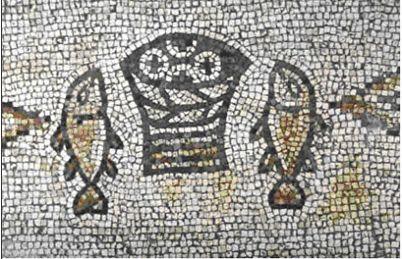“Self-righteous liberals tell us that Jesus had a heart for the poor, which is undeniable. But Jesus never directed that government be the agency used to help the poor. He was talking about charity proceeding from individuals and His church.”—Sean Hannity, Conservative Victory, p. 207
Don’t get Sean Hannity started on the “Christian left.” Only a communist, or worse, would even suggest that Christ’s injunctions to take care of the poor and vulnerable had anything to do with government. Those who believe such nonsense, he concludes, “would do well to remember the scriptural commandments against stealing and coveting.” For Hannity, taxing me to give food to a hungry person is a violation of two of the Ten Commandments. True religion is not about who you feed; it’s about whether or not we can post all ten commandments above our lockers.
Hannity’s position has become a fairly standard one in some conservative circles, which attempt tp hold the following two propositions simultaneously:
1) America is a Christian nation, founded on Christian principles by Christian Founders who always intended that religion remain an important part of public life.
2) America has no business trying to use the government to feed hungry people, give shelter and clothing to the poor, or provide educational opportunities and health care to those who cannot afford it on their own. This is the responsibility of private charities and Churches. Jesus never said that the government was supposed to do these things.
Are these contradictory propositions? It depends on what you believe about the relationship between the government and the people.
The Hannity Position is not (as many on the left reflexively assume) a blatant hypocrisy. It is quite correct to draw a distinction between what is ethically required of an individual and what makes a good public policy. Jesus did not command the government to take care of the poor, nor would it have made any sense if he had. The Romans who were occupying Palestine at the time had other interests. (Mainly, they wanted to keep the roads from Egypt open so that they could continue to import grain to distribute to poor Romans—not out of moral obligation, but because they thought that hungry people in the capital were politically destabilizing).
But self-government—We the People and all that—changes the equation substantially. One of the core assumptions of representative democracy is that government is an agent of collective action. I have a hard time believing that anybody living in a democratic society could read the New Testament, or the Koran, or the writings of Confucius or the Buddha, or any of the other great religious books and come away believing that these texts divorce responsibility for the poor from the proper function of government. Such an assumption, I believe, requires us to abandon one of the most fundamental assumptions of a self-governing people: that we have a responsibility to act, through the agency of our government, to do good things.
The government is “us”; it is not “them.” Both liberals and conservatives believe this, but they tend to believe it about different things. Most liberals (like most moderates and most conservatives) believe that their government should reflect the values of charity and compassion—values that can be found in all religious traditions as well as in most forms of secular humanism. The shrillest voices from the extreme right, however, see these things as outside of the government’s purview. They prefer that we focus our religious attention on graduation prayers, crèche displays, and making sure that schools give equal time to the dinosaurs on Noah’s Ark.
Jesus actually had an expression for just such a worldview. It had to do with swallowing a camel.
